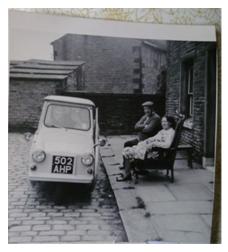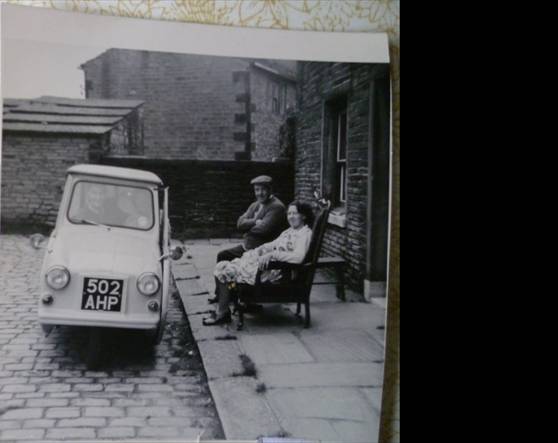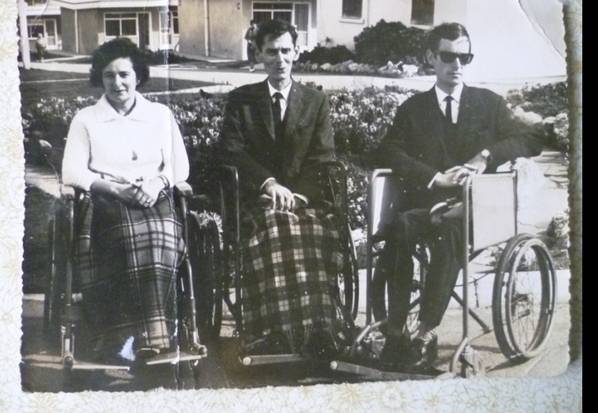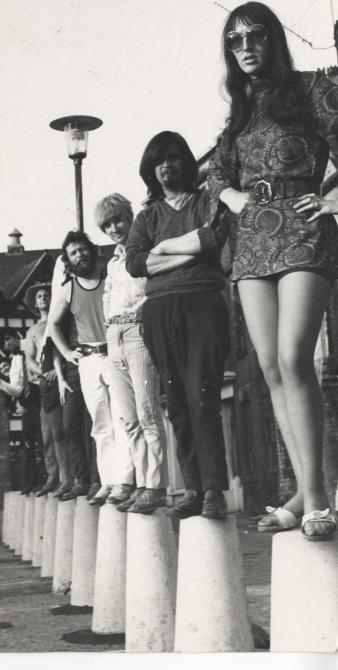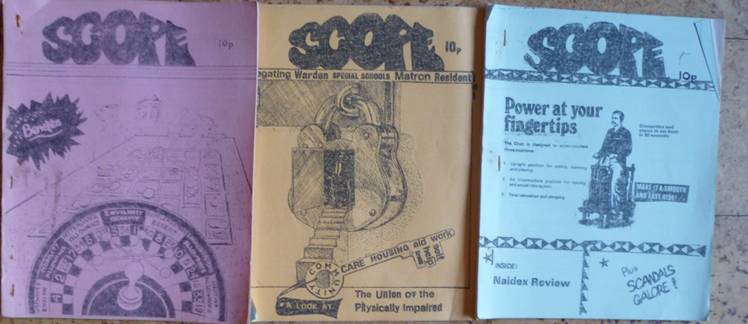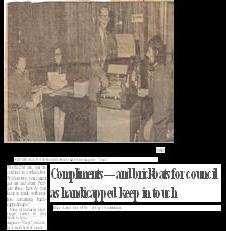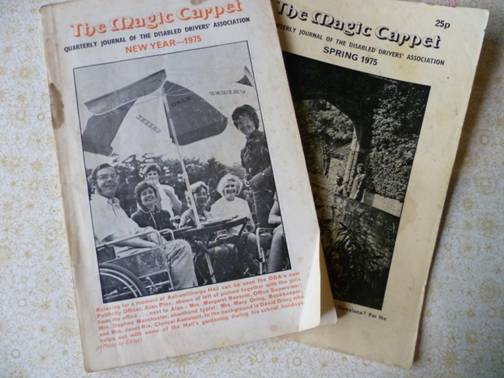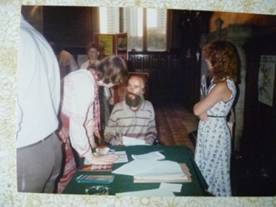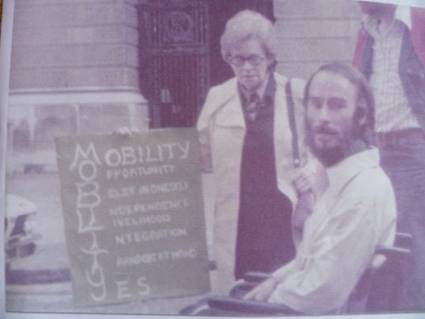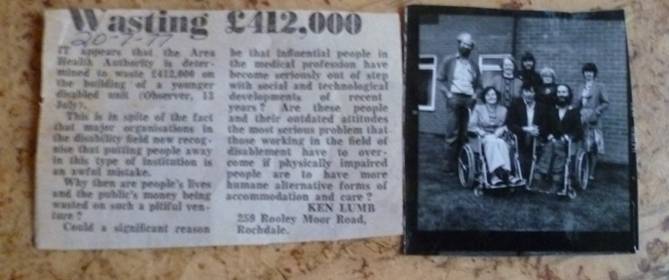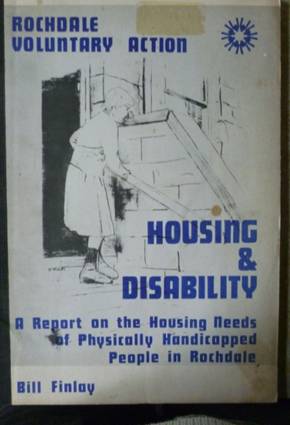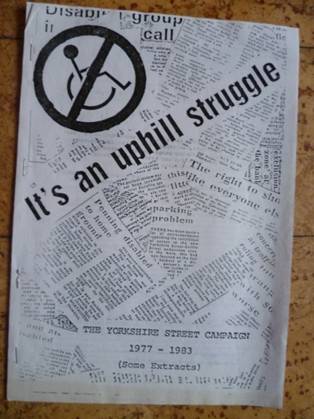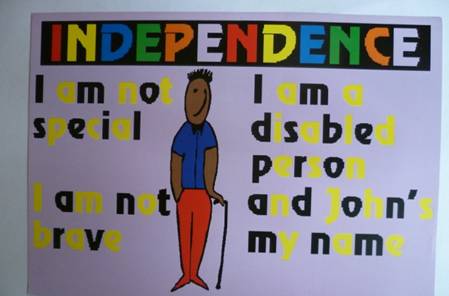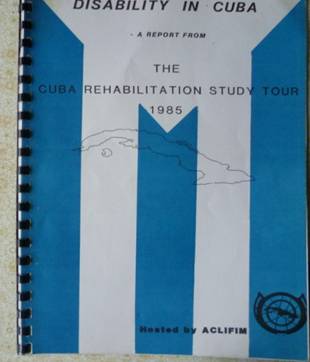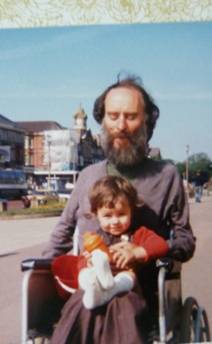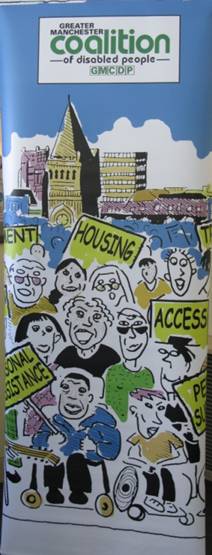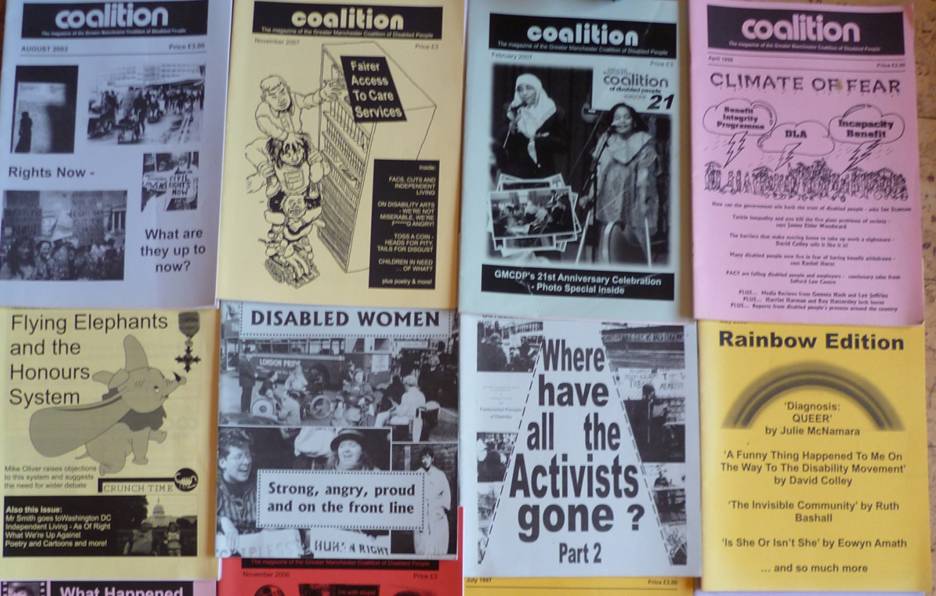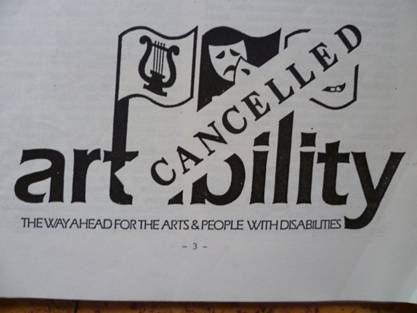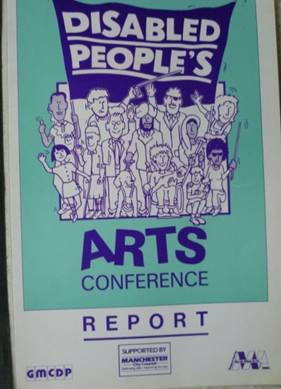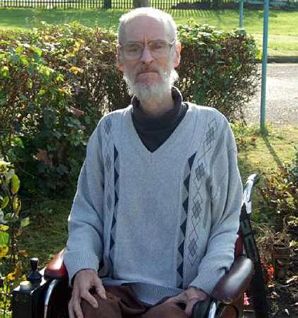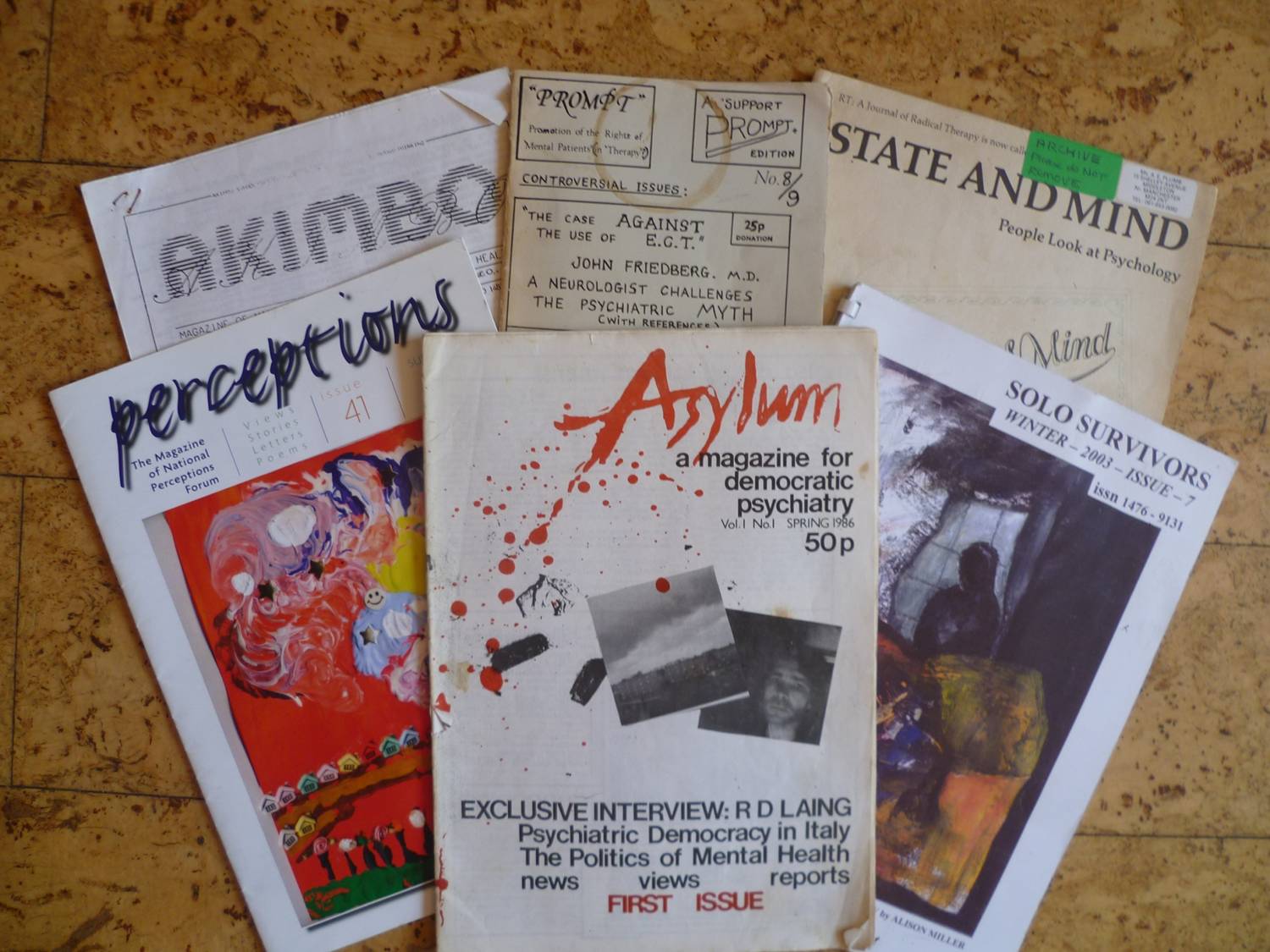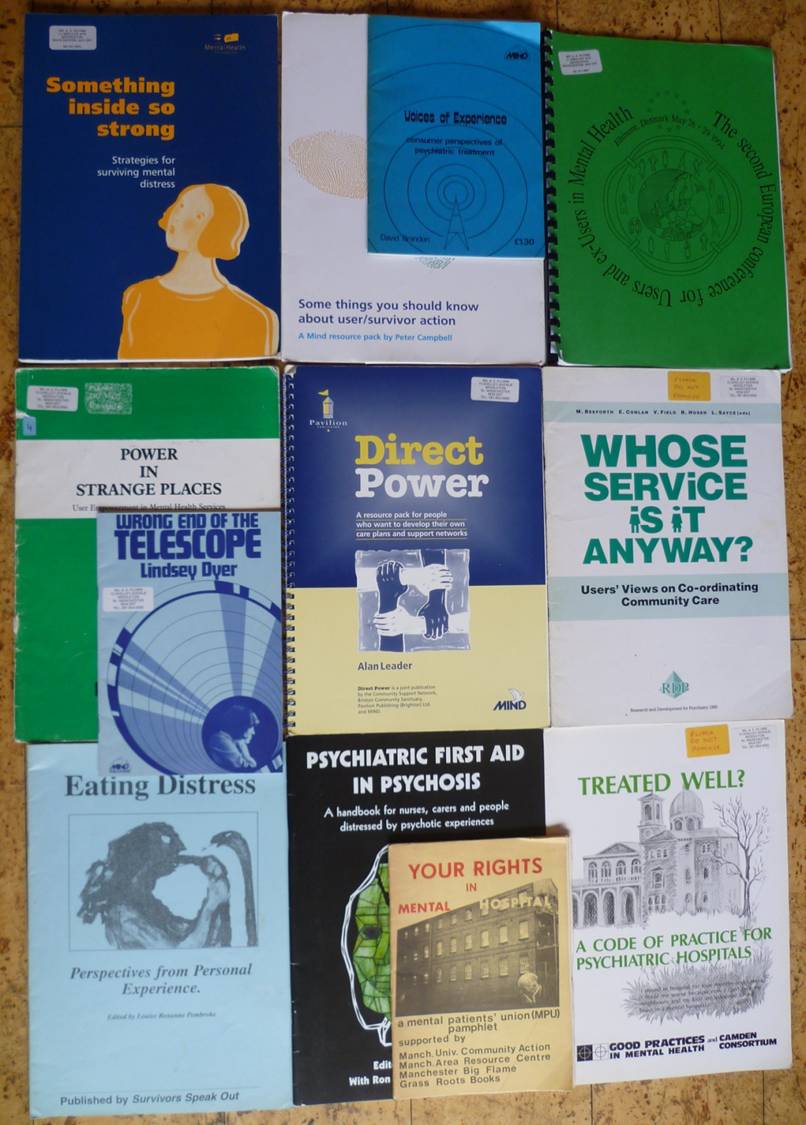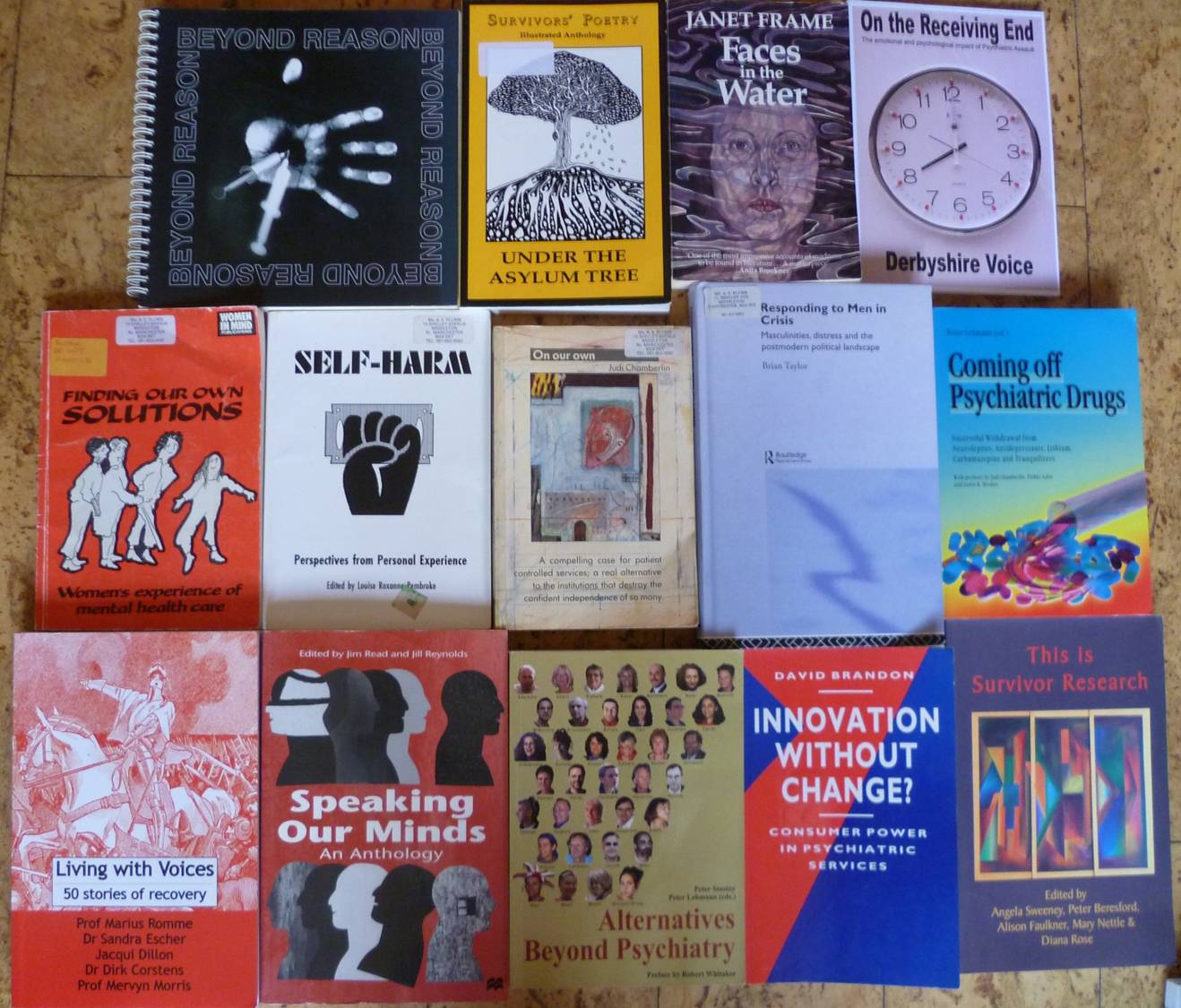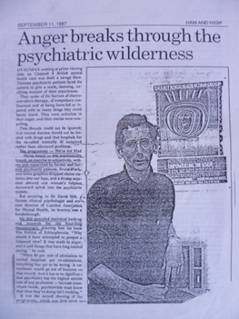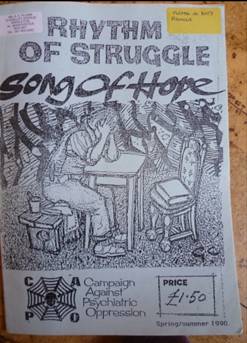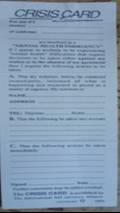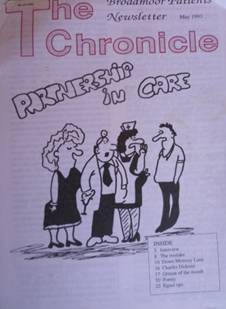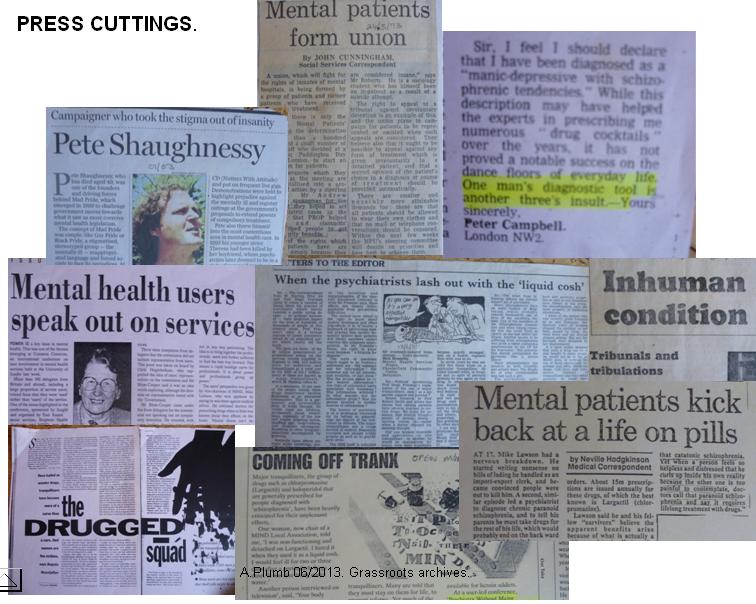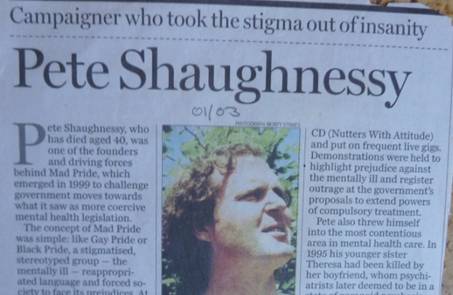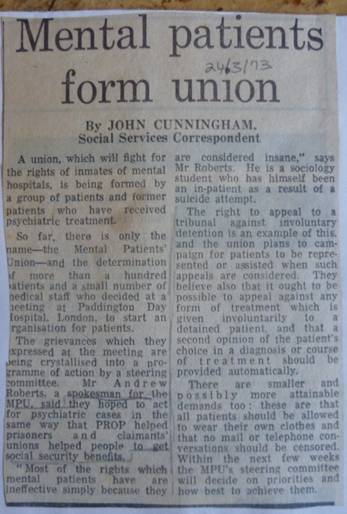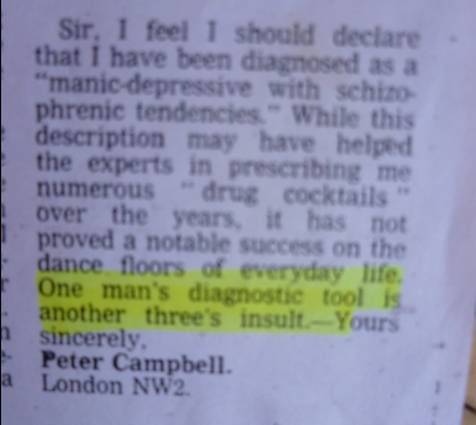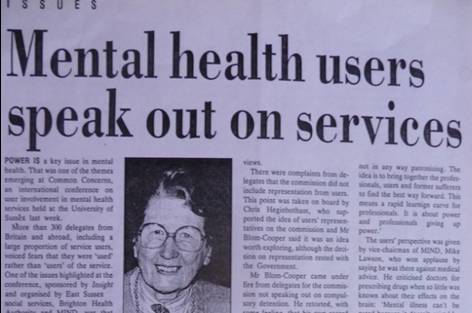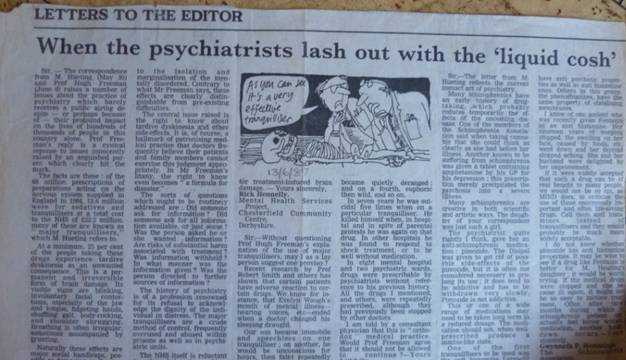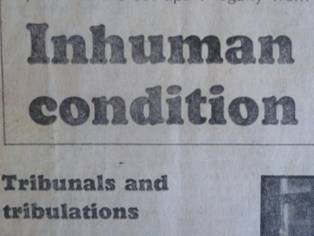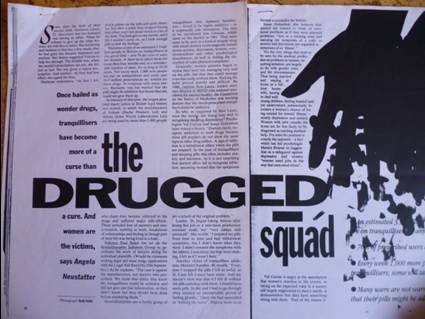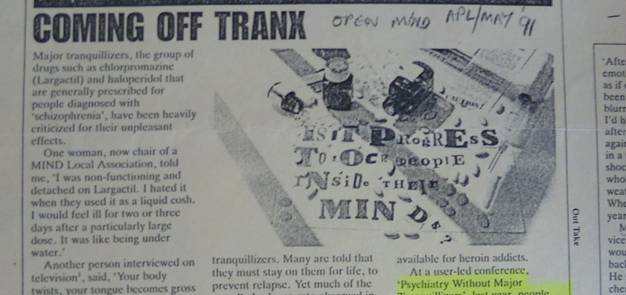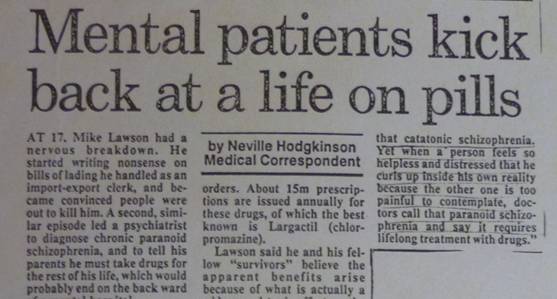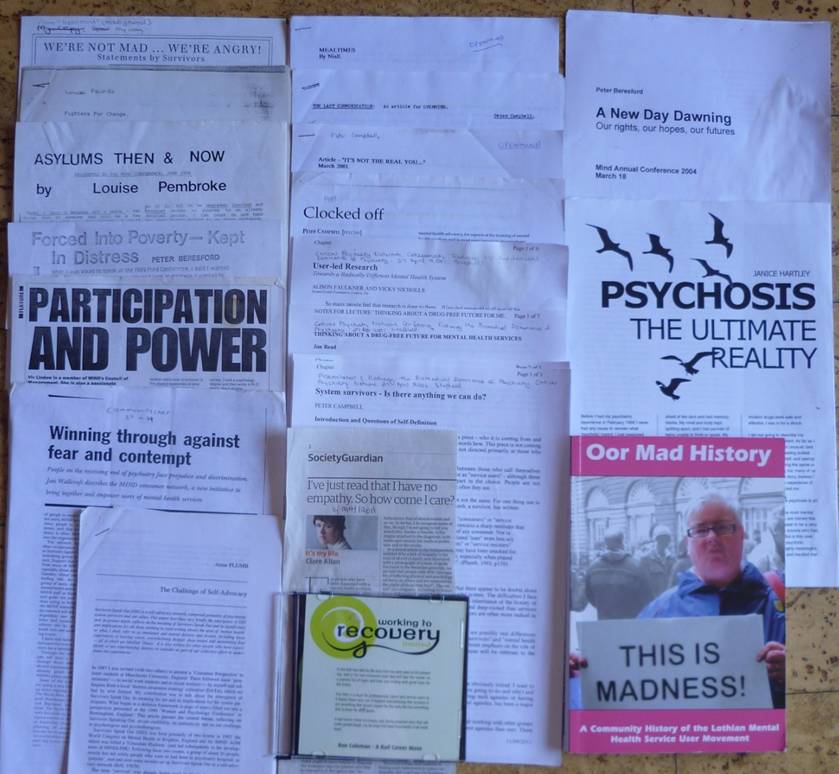Ken Lumb and Anne Plumb's grassroots archives
Slide 1 - Introduction (Slide 2) - Slide 3 Ken Lumb - Slide 4 Anne Plumb - Slide 5 Going? or archive?- Ken's archive (Slide 6 Ken's background) - Slide 7 Rochdale sculpture - Victor Finkelstein and the Union of the Physically Impaired Against Segregation - ~~ Slide 8 more from 1970s - Rochdale Voluntary Action - Slide 9 1980s - 1981 International Year of Disabled People - Slide 10 Arts and Cuba - Slide 11 Coalition magazine - Anne's archive [Catalogue] - Slide 12 Early collection - Slide 13 - Slide 14 - Slide 15 - Slide 16 - Slide 17 Press cuttings - Slide 18 - Slide 19 Survivor History Group - Slide 20 Archives and history -
I am going to talk about two grassroots archives linked to two social and
political movements.
* disability movement
* mental health movement
First a definition by the
Union of the Physically Impaired Against Segregation in 1976.
Disability is the disadvantage or restriction of activity caused by a
contemporary social organisation which takes little or no account of
people with physical impairments and thus excludes them.. Physical
disability is, therefore,a particular form of social oppression.
And a definition form the
Mental Health System Survivors policy statement
in
1987
Definitions are controversial . Diversity, however, gives balance to
archives. Their potency often lies in their focus.
"Mental health' system survivors are people who are neither
'crazy' nor 'mentally ill' nor genetically distinguishable from anyone
else..Rather we
have been victimised by the 'mental health' system because of our hurts and
the hurts of those around us. Because in trying to get help in the only
ways or places we know of, because we belong to certain oppressed groups,
or refuse to fulfil some of society's prescribed roles, or protest the
wrongs of society , we became involved in the 'mental health'
system."
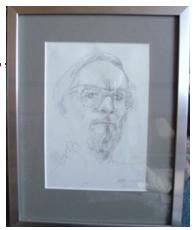
Self portrait |
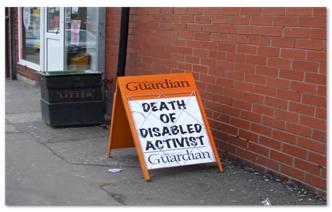
Middleton: Greater Manchester |
Disabled activist

|
The first archive is that of Ken Lumb, a long time disabled activist. There will be many of these sorts of archives in people's house. Someone joins an organisation, keeps annual reports and press cuttings, joins an executive committee, accumulate minutes, correspondence, reports. Keeps them in a pile, files, or boxes in the loft. Ken's files are themed - housing, helper/helped relationship, mobility and access, charity, genetics and reproductive technology..and so on In addition to relevant publications are two set of magazines, Scope and Coalition which I will return to. . |
|
Anne Plumb 1946-
Mental Health System Survivor The second archive is my own, covering mostly the 1970s, 1980s and 1990s. This is a more specialised archive I started taking press cuttings, picking up leaflets at conferences, then buying booklets I came across through newsletters ,and as a distress awareness trainer, purchasing reports and books.
There are two sections to my archive. The first I've named Ear to the Ground. Survivor and Ally Voices: Organisation and Action. This comprises 3 files in chronological order and additional extracts from these items.50+ booklets and reports and 20+ books whose authors are largely survivors/services users plus associated books. |
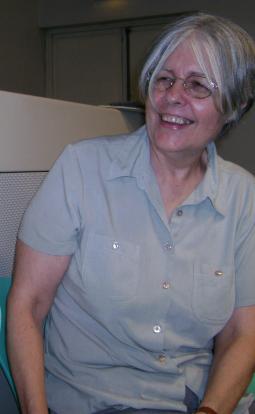
|
I also have magazines and newsletters, a couple of these are almost complete sets (Asylum magazine and Hearing Voices Network newsletter.)
The other is supplementary files on survivors perspectives, psychiatry and service provision.
One in a hundred
Aidan Schindler whose art work I've shown is a survivor artist and activist. In 1 in 100 ,a person diagnosed with schizophrenia is a butterfly. The remaining 99 are a well known psychological ink blot. After some deliberation I was given the label of manic depressive psychosis rather than schizophrenia so I am a blob not a butterfly!
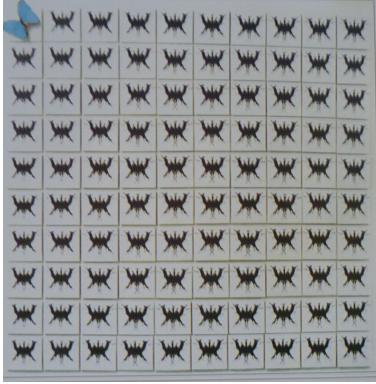
|
TEXT HERE |
FUTURE for Grassroots Archives
DISPERSAL - LOFTS - BIN LINERS - SKIPS?
(ageing activists, organisations folding)
OPEN QUESTIONS
I am going to provide a glimpse of these archives leaving open a number of
questions as to
the significance of these archives,
associated problems,
their loss as activists age and organisations fold.
what the loss means regarding academic accounts of grassroots activism,
how such archives may be conserved and made accessible and the practical
problems of copyright, confidentiality etc.
There is the Disability Unit at Leeds University
But conserving the archives of mental health activists is complicated as
some of us do not see ourselves as having mental impairments and believe
that we should be in alliance with the disability movement rather than
absorbed by it.
The Wellcome institute has National Mind's archive but some activist do not
like the association with the drug companies.
And some organisations want to keep their archives local.(Tower Hamlets
African and Caribbean Mental health organisation)
Background to Ken Lumb's archive
I am just going to give a little background to Ken Lumb's archive.
Ken was born in Rochdale, part of greater Manchester.
Ken remained true to his working class roots although he moved on in some
ways, obtaining , over 8 years work, a degree through the Open University.
Encountered the Fronte Radicale Invalidi on a Study Tour to Rome in March
1977 (detailed access posters fly posted and direct action closing part of
the old town)
A second photograph shows Ken Lumb (right) aged 23, his brother Brian
Lumb and friend on a Holiday
in a Butlins camp organised by the Red Cross in November 1964.
Most of Ken's archive from the 1940s to 1960s
are photographs. But there are a couple of magazines,
Magic Carpet from the
Disabled Drivers Association in which he was active and Progress from the
Disablement Income Group.
See Wikipedia
Disabled_Motoring_UK
The picture shows Rochdale Sculptors (and artists) leaving Ellen Smiths
on their Grand Tour.
"From the late 60s until they split in
1974, the Rochdale Sculptors often took their work outdoors to
bring it directly to members of the public, targeting viewers with little
or no experience of art. Their sculptures regularly appeared along the
Esplanade and in other parts of the Borough as well as other locations in
the region. They also exhibited indoors at Rochdale Art Gallery and other
galleries and venues including the Houses of Parliament."
Ken Lumb's own cartoons and some of his artwork was political. See, for
example, the covers of
Scope magazine
SCULPTORS ... Walter Kershaw, Christine Pearson, Danny Milne, Robin
Forrester, Ken Lumb, Barry Hobson, Tony Smart and Peter Wolstenholme.
The Rochdale Sculptors were formed in
1968 by Peter Wolstenholme and Tony
Smart who at the time were lecturers at Rochdale College of Art. More
tutors at the college soon became involved and the group grew to include
other artists, some of whom had no direct connection with the college or
Rochdale.
(source)
Ken was also an occasional visitor to the Ronald Gorton Day Centre for
Elderly and Disabled People where I was working as a cleaner and dinner
lady.
Initially, Ken took part in snooker matches but then became involved in
establishing a
Housing and Disability group, a
Mobility and Access group,
a
Holiday Group and producing a magazine
Scope. (1972-1976).
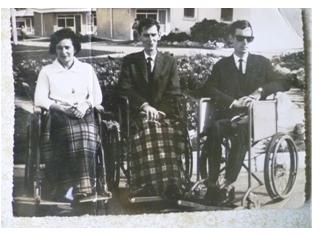
November 1964
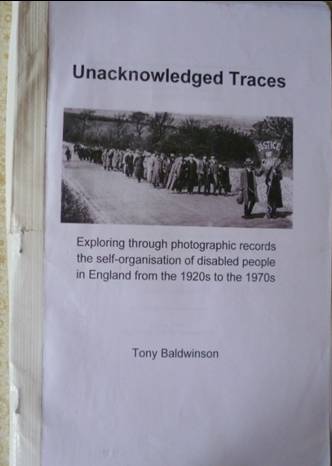
An account of the Disabled Drivers Association (1960s) is given in
Tony Baldwinson's
Unacknowlged Traces; Exploring through photographic records the self-
organisation of disabled people from the 1920s to the 1970s.
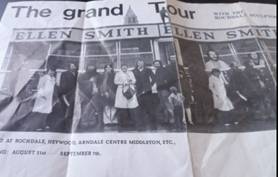
In the early 1970s Ken was secretary to the Rochdale Sculptors, a radical
group. One member, Walter Kershaw, painted a mural on a wall at
UMIST I
think it was.
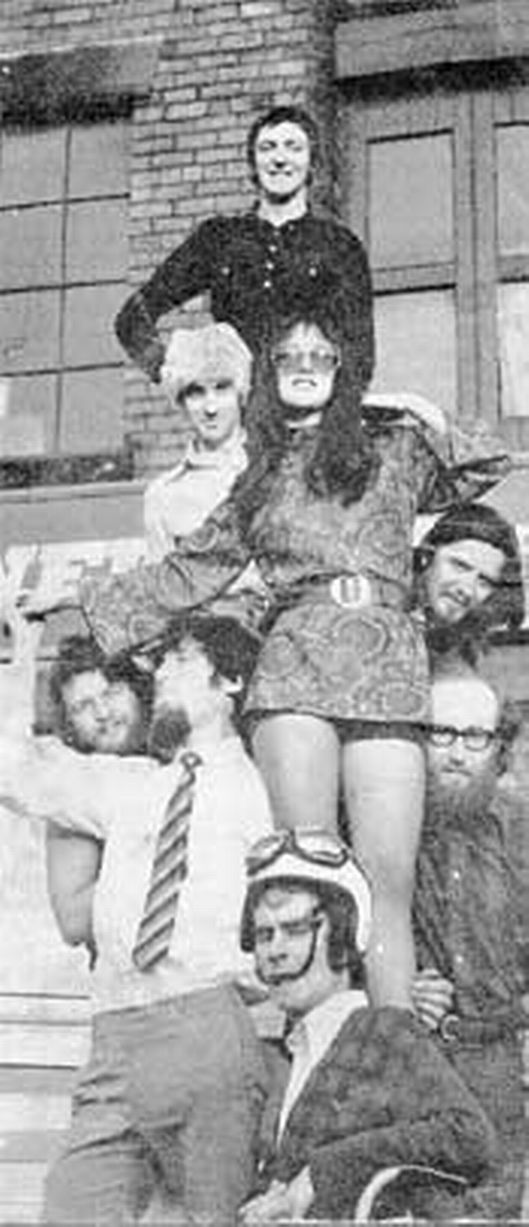

Ronald Gorton Day Centre

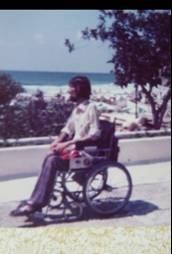
A photo of Brian now in Majorca - a collaboration of the Holiday
group and a local Travel Agent ( Brian was a regular visitor and involved
in clubs that used the centre.)

